
Find Help
More Items From Ergsy search
-
Is the sugar tax applied to diet or zero sugar drinks?
Relevance: 100%
-
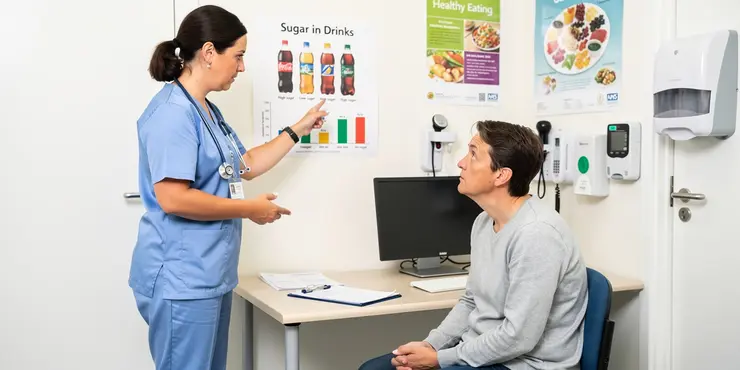
Has the sugar tax affected the sugar content in drinks?
Relevance: 67%
-

Which drinks are exempt from the sugar tax?
Relevance: 65%
-

Has the sugar tax led to innovation in the drinks industry?
Relevance: 61%
-

What is the sugar tax in the UK?
Relevance: 58%
-

Who pays the sugar tax?
Relevance: 53%
-

What is the purpose of the sugar tax?
Relevance: 52%
-

Has the sugar tax been effective?
Relevance: 50%
-

Does the sugar tax apply to small businesses?
Relevance: 50%
-

What are the long-term goals of the sugar tax?
Relevance: 48%
-

How does the sugar tax affect consumers?
Relevance: 48%
-

Does drinking orange juice affect blood sugar levels?
Relevance: 48%
-
How much revenue has the sugar tax generated?
Relevance: 48%
-

How does the sugar tax align with public health strategies?
Relevance: 47%
-

What impact has the sugar tax had on obesity rates?
Relevance: 47%
-
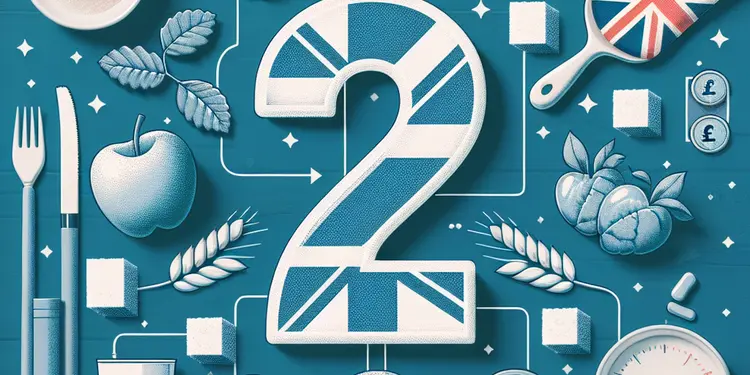
What is the role of sugar in a balanced diet?
Relevance: 47%
-

How is the revenue from the sugar tax used?
Relevance: 44%
-
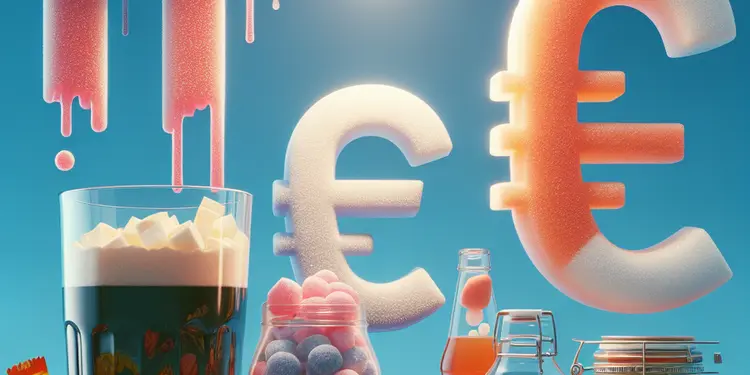
What are 'free sugars' and why should they be limited?
Relevance: 41%
-
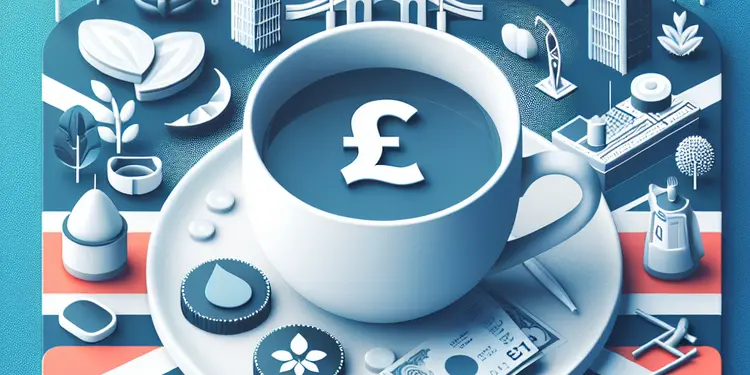
Can I have sugar if I am diabetic?
Relevance: 40%
-

What role do sugary drinks play in obesity?
Relevance: 40%
-

What is the recommended daily sugar intake for adults?
Relevance: 40%
-
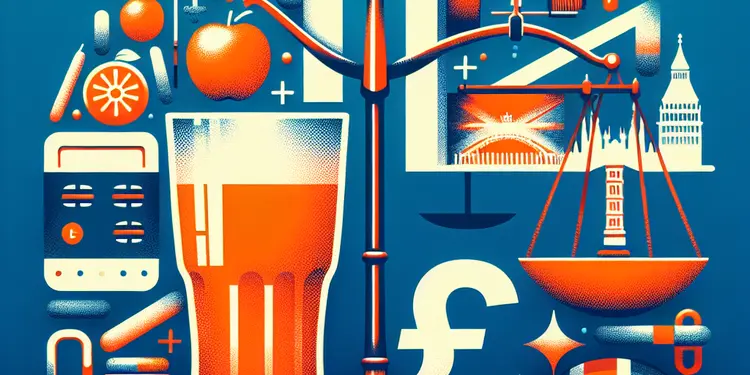
Is it safe to drink orange juice if I have diabetes?
Relevance: 40%
-
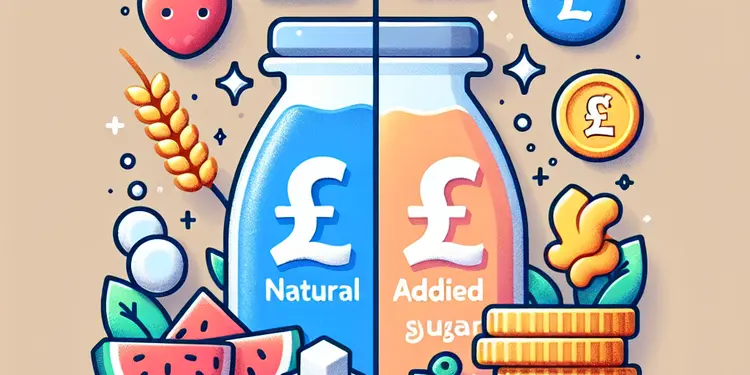
What is the difference between natural sugar and added sugar?
Relevance: 39%
-
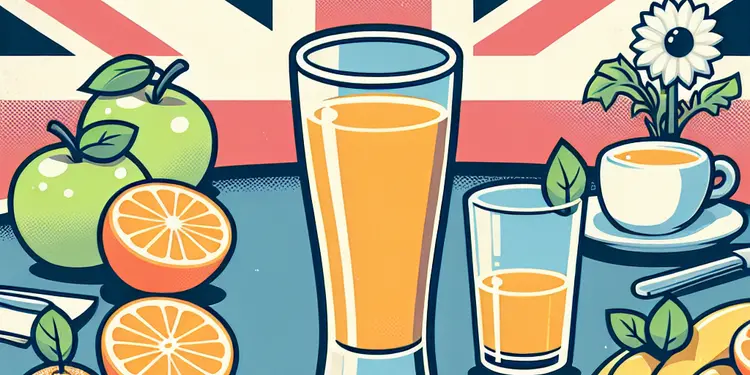
Is it okay to drink orange juice every day?
Relevance: 39%
-

What is the 'sugar crash'?
Relevance: 39%
-

How is the sugar tax applied?
Relevance: 39%
-

Are sugary drinks worse than sugary foods for causing tooth decay?
Relevance: 38%
-
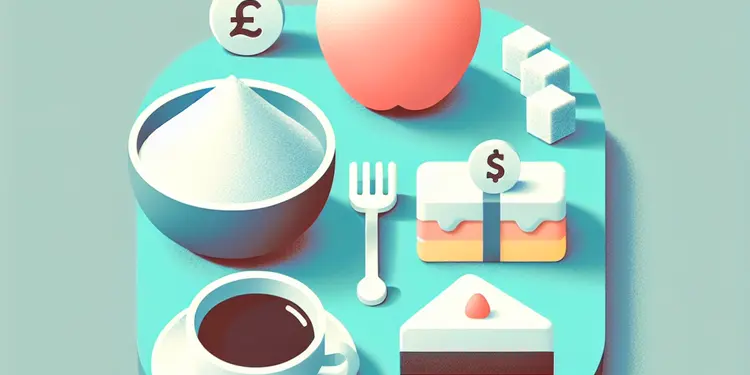
How can I reduce my sugar intake?
Relevance: 38%
-
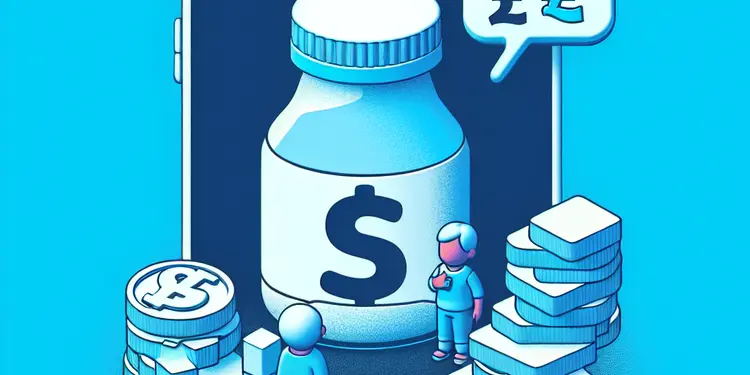
How many grams of sugar should a child consume daily?
Relevance: 38%
-
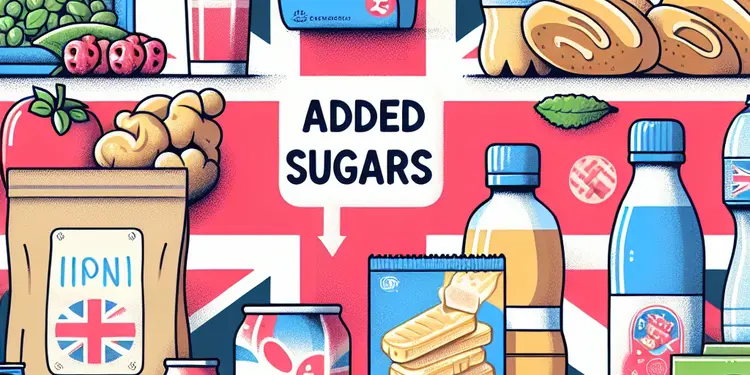
What are some hidden sources of added sugars?
Relevance: 38%
-
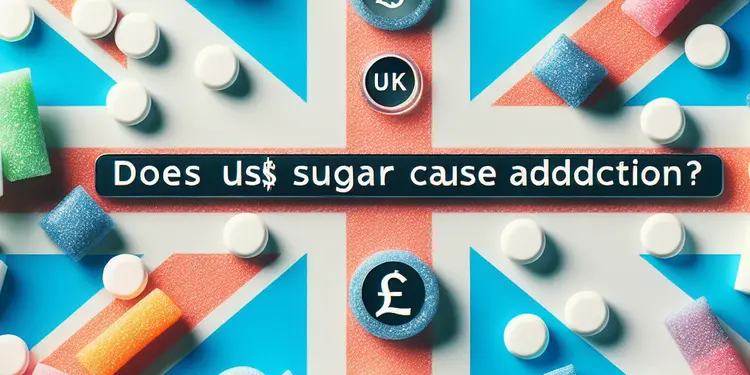
Does sugar cause addiction?
Relevance: 38%
-

When was the sugar tax introduced in the UK?
Relevance: 38%
-

What are the rates for the sugar tax?
Relevance: 37%
-
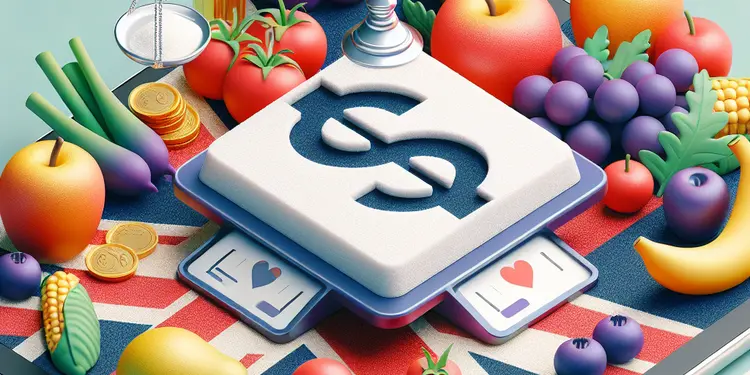
Can reducing sugar intake aid weight loss?
Relevance: 37%
-
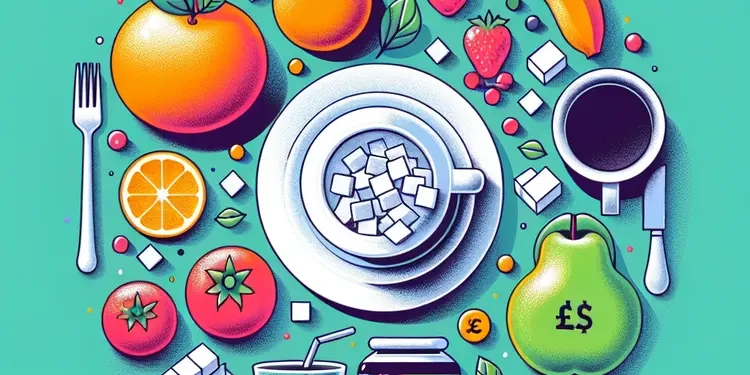
How much sugar should I eat every day?
Relevance: 37%
-
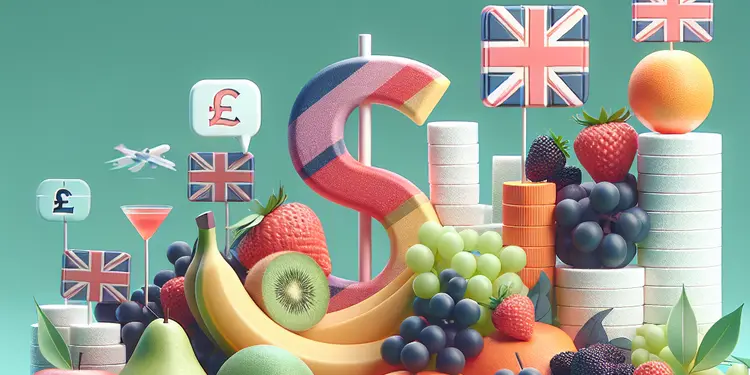
Is the sugar in fruit bad for you?
Relevance: 37%
-
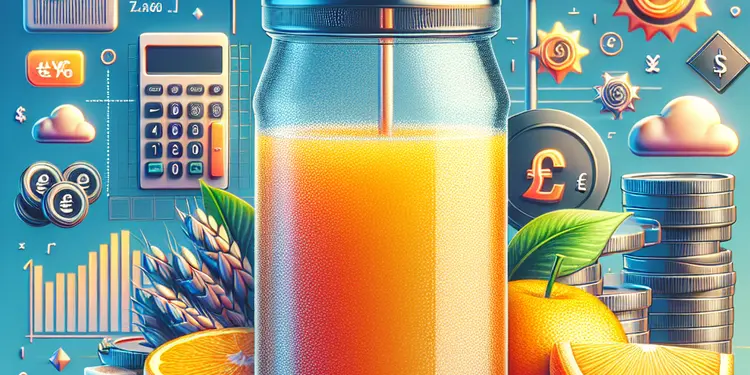
Is orange juice high in sugar?
Relevance: 37%
-

Why is it important to limit sugar intake?
Relevance: 36%
-
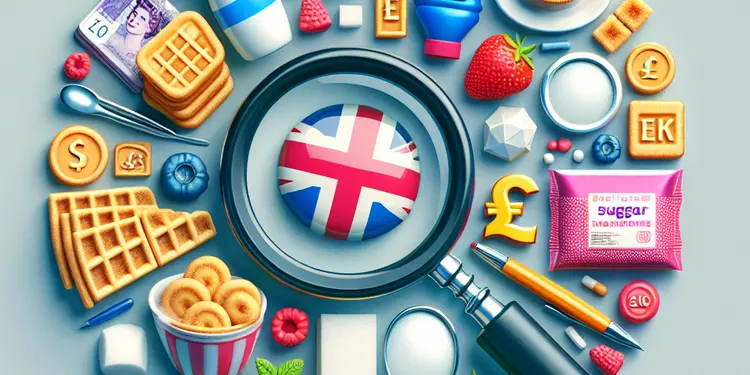
How do I determine how much sugar is in a product?
Relevance: 36%
-

How can I satisfy my sweet tooth without consuming sugar?
Relevance: 35%
The Sugar Tax in the UK
The UK government introduced a sugar tax, officially known as the Soft Drinks Industry Levy, in April 2018. The primary aim of this levy is to combat rising obesity levels by encouraging manufacturers to reduce the sugar content in their drinks. The sugar tax targets drinks with added sugar content but is only applicable to those that exceed a certain amount of sugar per 100 milliliters. The tax is designed to promote healthier choices and reduce sugar consumption among the population.
Scope of the Sugar Tax
The sugar tax is specifically applied to soft drinks that contain more than 5 grams of sugar per 100 milliliters. There are two tax bands: one for drinks with 5-8 grams of sugar per 100 ml, and another higher rate for drinks with more than 8 grams of sugar per 100 ml. This tiered approach is meant to incentivize soft drink manufacturers to reformulate their products to contain less sugar. The tax does not apply to pure fruit juices or milk-based drinks due to their nutritional content, despite their natural sugar content.
Application to Diet or Zero Sugar Drinks
Diet or zero sugar drinks, such as Diet Coke or Coca-Cola Zero Sugar, are not subject to the sugar tax. These beverages are formulated to contain little or no sugar, using artificial sweeteners to provide a sweet taste without the associated calories and sugar content. As a result, they fall below the sugar content threshold set by the levy and are therefore exempt from the tax.
Impact on Manufacturers and Consumers
The introduction of the sugar tax has prompted many manufacturers to alter their beverage recipes to avoid the levy, leading to a significant reduction in the sugar content of many popular drinks. Some brands have opted to promote their diet or zero sugar variants more aggressively to encourage healthier consumer choices. For consumers, this means a wider range of low-sugar and sugar-free options in the market, potentially aiding in efforts to reduce sugar consumption and its related health risks.
Conclusion
In summary, the sugar tax in the UK targets sugar-laden soft drinks to encourage lower sugar consumption. Diet or zero sugar drinks are not affected by this tax due to their low sugar content. This distinction incentivizes both manufacturers and consumers to opt for healthier alternatives, aligning with public health objectives to tackle obesity and promote overall well-being. As the landscape of consumer preferences and health awareness evolves, the role of the sugar tax remains crucial in fostering an environment conducive to healthier lifestyle choices.
The Sugar Tax in the UK
The UK has a sugar tax, called the Soft Drinks Industry Levy. It started in April 2018. The government wants to use this tax to help people be healthier. Too much sugar can make people gain weight (obesity), so the tax is to make companies put less sugar in drinks. Only drinks with lots of added sugar get taxed. By doing this, the government hopes people will choose drinks with less sugar.
What Drinks Does the Sugar Tax Affect?
The sugar tax only affects soft drinks with more than 5 grams of sugar in 100 milliliters. There are two levels of tax. Lower tax for drinks with 5-8 grams of sugar. Higher tax for drinks with more than 8 grams of sugar. This makes companies think about making drinks with less sugar. Pure fruit juices and milk drinks do not have this tax. This is because they have good nutrients even if they have natural sugar.
What About Diet or Zero Sugar Drinks?
Drinks like Diet Coke or Coca-Cola Zero Sugar do not have to pay the sugar tax. These drinks use sweeteners instead of sugar. So, they have little or no sugar. Because they have less sugar than the limit, they are not taxed.
How Does the Sugar Tax Affect Companies and Shoppers?
The sugar tax made many companies change their drinks to avoid the tax. This means a lot of drinks now have less sugar. Some companies are also promoting their diet or zero sugar drinks more. This gives shoppers more choices if they want less sugar. Less sugar can help people be healthier and avoid problems like obesity.
Conclusion
To sum up, the sugar tax in the UK makes drinks with a lot of sugar more expensive. Diet or zero sugar drinks do not have this tax because they have little sugar. This tax encourages companies and shoppers to make healthier choices. The main goal is to help people stay healthy and avoid obesity. The sugar tax is important for making sure people have healthier options.
Frequently Asked Questions
What is the sugar tax?
The sugar tax, also known as the Soft Drinks Industry Levy, is a tax on soft drinks that contain added sugar. It was introduced to encourage manufacturers to reduce sugar content in their products.
Is the sugar tax applied to diet drinks?
No, the sugar tax is not applied to diet or zero sugar drinks because these beverages contain little to no sugar.
Are zero sugar drinks exempt from the sugar tax?
Yes, zero sugar drinks are exempt from the sugar tax because they do not contain added sugar.
Why are diet drinks not taxed under the sugar tax?
Diet drinks are not taxed under the sugar tax because they generally do not contain added sugars, which the tax aims to reduce.
Does the sugar tax apply to artificially sweetened drinks?
No, artificially sweetened drinks, such as diet sodas, are not subject to the sugar tax since they use non-caloric sweeteners instead of sugar.
Which drinks are taxed under the sugar tax?
The sugar tax is applied to soft drinks that contain more than 5 grams of added sugar per 100 milliliters.
Are sugar-free energy drinks subject to the sugar tax?
No, sugar-free energy drinks are not subject to the sugar tax since they do not contain added sugar.
Does the sugar tax impact the price of diet beverages?
No, the price of diet beverages is not directly impacted by the sugar tax, as these drinks are exempt due to their lack of sugar.
Are all zero sugar drinks exempt from the sugar tax?
Yes, all zero sugar drinks are generally exempt from the sugar tax because they do not contain added sugars.
What is the main goal of the sugar tax?
The main goal of the sugar tax is to reduce the consumption of sugary drinks and encourage manufacturers to reformulate products to lower sugar content, promoting public health.
Do low-calorie beverages incur the sugar tax?
Low-calorie beverages typically do not incur the sugar tax if they fall under the threshold for sugar content set by the regulation.
Are there any exceptions to the drinks exempt from the sugar tax?
The sugar tax specifically targets drinks with added sugars. Exceptions could occur if a low or zero sugar drink somehow exceeds the sugar threshold, but this is unlikely.
How much sugar must a drink contain to be taxed?
A drink must contain more than 5 grams of added sugar per 100 milliliters to be taxed under the sugar tax.
Why doesn't the sugar tax apply to zero sugar drinks?
The sugar tax doesn't apply to zero sugar drinks because the levy aims to reduce sugar intake, and these drinks contain no added sugars.
Do natural fruit juices fall under the sugar tax?
Natural fruit juices without added sugars are not typically taxed under the sugar tax, but if sugars are added, then they might be subject to the levy.
How does the sugar tax encourage healthier drinks?
The sugar tax encourages manufacturers to lower the sugar content in drinks to avoid the levy, thus promoting healthier drink options.
Are drinks with natural sweeteners taxed?
Drinks with natural sweeteners can be taxed if they exceed the sugar content threshold set by the legislation.
Have any companies reformulated drinks due to the sugar tax?
Yes, many companies have reformulated drinks to reduce sugar content and avoid the sugar tax, offering lower sugar or sugar-free alternatives.
What impact has the sugar tax had on consumer habits?
The sugar tax has led to increased consumer awareness and often a shift towards choosing low-sugar or sugar-free drinks.
Can I be sure all diet drinks are free of the sugar tax?
You can generally be sure that standard diet drinks are exempt from the sugar tax, as they usually do not exceed the sugar content threshold.
What is the sugar tax?
The sugar tax is money that the government adds to sugary drinks. This helps people drink less sugar. It can make you healthier.
Some tools and ideas that might help you understand are:
- Use pictures to show drinks with and without sugar.
- Ask someone to read this with you.
- Watch a video about sugar in drinks.
- Use a dictionary to learn about words like "tax" and "sugar".
The sugar tax is a rule that says companies have to pay extra money if they put a lot of sugar in their drinks. This tax is meant to make companies use less sugar in drinks like soda and juice.
Do we pay extra money on diet drinks because of the sugar tax?
No, the sugar tax does not apply to diet or zero sugar drinks. These drinks have little or no sugar.
Do drinks with no sugar have to pay the sugar tax?
Drinks with no sugar, like diet sodas, might not have to pay the sugar tax. It's good to check the rules. You can ask someone for help if you don't understand.
Yes, drinks with no sugar do not have the sugar tax. This is because they do not have any added sugar.
Why don't diet drinks have the sugar tax?
The sugar tax is a special money charge on drinks with lots of sugar. Diet drinks do not have much sugar, so they do not have this extra charge.
Tools to help: You can use text-to-speech apps to read this aloud.
Diet drinks are not taxed because they don't have extra sugar. The sugar tax is to cut down on drinks with added sugar.
Do drinks with fake sugar have to pay extra money?
No, diet sodas and other drinks with fake sugar do not have extra tax. This is because they don't use real sugar.
Which drinks have extra costs because of sugar?
There is a special tax for drinks with a lot of sugar. This tax is for drinks that have more than 5 grams of sugar in every 100 milliliters.
Do sugar-free energy drinks have to pay the sugar tax?
Sugar-free energy drinks don't have sugar. So, they don't have to pay the sugar tax.
If you want help with reading, try using tools like audiobooks or talking with someone about the text.
No, sugar-free energy drinks do not have the sugar tax. This is because they do not have added sugar.
Does the sugar tax change the price of diet drinks?
No, diet drinks do not cost more because of the sugar tax. This is because they don't have sugar.
Do all drinks with no sugar have to pay a sugar tax?
Yes, drinks with no sugar usually do not have to pay the sugar tax. This is because they don't have any added sugar.
Why do we have a sugar tax?
The sugar tax helps people be healthier. It tries to make people drink less sugary drinks. It also gets companies to make drinks with less sugar.
Do drinks with low calories have to pay the sugar tax?
Drinks with low calories usually do not have to pay the sugar tax if they have a small amount of sugar. This amount is decided by the rules.
Are there any drinks that still have to pay the sugar tax?
The sugar tax is for drinks that have added sugar. Drinks with little to no sugar do not usually have to pay the tax.
When does a drink have too much sugar and needs a tax?
Some drinks with a lot of sugar have to pay extra money, called a tax. This happens when the drink has too much sugar.
To know if a drink has too much sugar, you can ask an adult to help check the label on the bottle or can. They can help you find out how much sugar is in the drink.
Sometimes, drinks with lots of sugar get a special mark to show they cost more because of the tax.
If a drink has more than 5 grams of sugar in every 100 milliliters, there will be an extra charge called a sugar tax.
Why don't we pay extra money for zero sugar drinks?
The sugar tax does not include drinks with zero sugar. This is because the tax is meant to help people drink less sugar, and these drinks do not have any added sugar.
Do you have to pay extra money for sugar in natural fruit juices?
Some drinks with a lot of sugar cost more money because of a sugar tax.
This tax is to help people choose healthier drinks. But what about natural fruit juices?
Natural fruit juices do not have added sugar. So, they usually do not cost extra because of the sugar tax.
If you find reading hard, you can ask someone to help read with you. You can also use audiobook apps or talk-to-text tools.
Most natural fruit juices don't have extra sugar added. These juices usually don't have a sugar tax. But if someone adds sugar to them, they might have to pay the tax.
How does the sugar tax help people choose healthy drinks?
The sugar tax helps make drinks healthier. It does this by getting drink makers to use less sugar so they don't have to pay extra money. This helps us have better drink choices.
Do drinks with natural sweeteners have a tax?
If a drink has natural sweeteners and has too much sugar, it can be taxed. This is because of the rules made by the government.
Did any companies change their drink recipes because of the sugar tax?
The sugar tax means drinks with too much sugar cost more money. Companies want their drinks to cost less, so they might change the recipe to use less sugar.
To understand this better, look for drinks with "low sugar" or "sugar-free" on the label. You can also ask an adult to help you look up information about the sugar tax.
Yes, lots of companies have changed their drinks. They made them with less sugar to not pay extra money called a sugar tax. Now, they have drinks with less sugar or no sugar at all.
How has the sugar tax changed what people buy?
The government made a rule called the sugar tax. This rule was made to help people be healthier. The sugar tax means certain drinks with a lot of sugar cost more money.
This rule is to help people buy less sugary drinks and choose healthier ones.
Think about how you choose drinks. Do you buy drinks with less sugar now?
You can count how much sugary drinks you buy each week to see if it changes.
Talking with friends or family can help you understand more.
The sugar tax helps people know more about sugar in drinks. Now, more people pick drinks with less sugar or no sugar at all.
Do all diet drinks have no sugar tax?
Most diet drinks do not have a lot of sugar. This means they do not have to pay the sugar tax. You can feel safe choosing diet drinks if you want to avoid the extra tax.
Useful Links
This website offers general information and is not a substitute for professional advice.
Always seek guidance from qualified professionals.
If you have any medical concerns or need urgent help, contact a healthcare professional or emergency services immediately.
Some of this content was generated with AI assistance. We’ve done our best to keep it accurate, helpful, and human-friendly.
- Ergsy carfully checks the information in the videos we provide here.
- Videos shown by Youtube after a video has completed, have NOT been reviewed by ERGSY.
- To view, click the arrow in centre of video.
- Most of the videos you find here will have subtitles and/or closed captions available.
- You may need to turn these on, and choose your preferred language.
- Go to the video you'd like to watch.
- If closed captions (CC) are available, settings will be visible on the bottom right of the video player.
- To turn on Captions, click settings .
- To turn off Captions, click settings again.
More Items From Ergsy search
-
Is the sugar tax applied to diet or zero sugar drinks?
Relevance: 100%
-

Has the sugar tax affected the sugar content in drinks?
Relevance: 67%
-

Which drinks are exempt from the sugar tax?
Relevance: 65%
-

Has the sugar tax led to innovation in the drinks industry?
Relevance: 61%
-

What is the sugar tax in the UK?
Relevance: 58%
-

Who pays the sugar tax?
Relevance: 53%
-

What is the purpose of the sugar tax?
Relevance: 52%
-

Has the sugar tax been effective?
Relevance: 50%
-

Does the sugar tax apply to small businesses?
Relevance: 50%
-

What are the long-term goals of the sugar tax?
Relevance: 48%
-

How does the sugar tax affect consumers?
Relevance: 48%
-

Does drinking orange juice affect blood sugar levels?
Relevance: 48%
-
How much revenue has the sugar tax generated?
Relevance: 48%
-

How does the sugar tax align with public health strategies?
Relevance: 47%
-

What impact has the sugar tax had on obesity rates?
Relevance: 47%
-

What is the role of sugar in a balanced diet?
Relevance: 47%
-

How is the revenue from the sugar tax used?
Relevance: 44%
-

What are 'free sugars' and why should they be limited?
Relevance: 41%
-

Can I have sugar if I am diabetic?
Relevance: 40%
-

What role do sugary drinks play in obesity?
Relevance: 40%
-

What is the recommended daily sugar intake for adults?
Relevance: 40%
-

Is it safe to drink orange juice if I have diabetes?
Relevance: 40%
-

What is the difference between natural sugar and added sugar?
Relevance: 39%
-

Is it okay to drink orange juice every day?
Relevance: 39%
-

What is the 'sugar crash'?
Relevance: 39%
-

How is the sugar tax applied?
Relevance: 39%
-

Are sugary drinks worse than sugary foods for causing tooth decay?
Relevance: 38%
-

How can I reduce my sugar intake?
Relevance: 38%
-

How many grams of sugar should a child consume daily?
Relevance: 38%
-

What are some hidden sources of added sugars?
Relevance: 38%
-

Does sugar cause addiction?
Relevance: 38%
-

When was the sugar tax introduced in the UK?
Relevance: 38%
-

What are the rates for the sugar tax?
Relevance: 37%
-

Can reducing sugar intake aid weight loss?
Relevance: 37%
-

How much sugar should I eat every day?
Relevance: 37%
-

Is the sugar in fruit bad for you?
Relevance: 37%
-

Is orange juice high in sugar?
Relevance: 37%
-

Why is it important to limit sugar intake?
Relevance: 36%
-

How do I determine how much sugar is in a product?
Relevance: 36%
-

How can I satisfy my sweet tooth without consuming sugar?
Relevance: 35%


